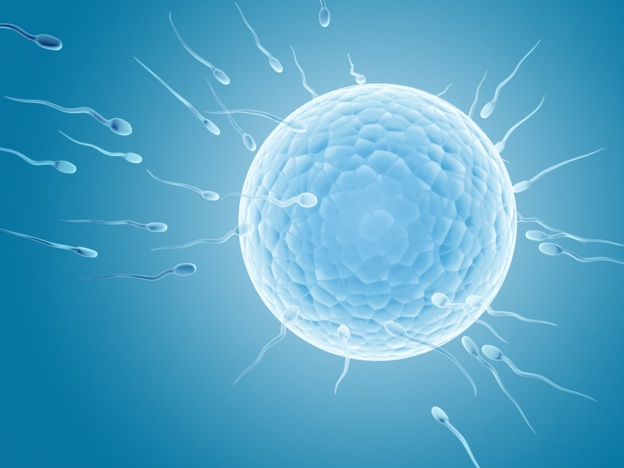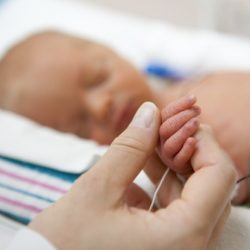SingaporeMotherhood | Pregnancy
April 2012
Safeguard Your Fertility

Studies have shown that one in six couples today has trouble conceiving and new research has resulted in the alarming news that women’s fertility begins to decline at age 27, not thirty-five as previously believed.
Yet our urban way of life today leads to later marriages and subsequently, later forays into motherhood. But all is not lost. Implementing a few simple changes to our lifestyle can do wonders to help safeguard our fertility and boost our chances of hearing that pitter-patter of little feet soon.
[banner][/banner]
You Are What You Eat
Nutritional therapist and author of Natural Solutions To Infertility, Dr Marilyn Glenville, says that good nutrition is the foundation of fertility. Her advice is to eat a wide variety of foods, preferably certified organic, because the way they are farmed encourages richer nutrient content and eliminates harmful pesticides.
Reading food labels while at the supermarket is also a good habit to inculcate. Cut out incorrect fats such as hydrogenated oils and partially-hydrogenated oils, as well as saturated fats, as they block the absorption of the good fats. Instead, stock up on the essential Omega 3 and 6 fatty acids, found in abundance in oily fish such as salmon and sardines. They help regulate fluidity of cell membranes, allowing cells to function efficiently, something that is critical for both male and female fertility.
Food rich in zinc is particularly important for fertility, as low sperm counts, low sperm motility and even miscarriages have been linked to zinc deficiency. Upping your consumption of mangoes, pumpkin seeds and fish can add to your zinc intake. Oysters, too, are particularly high in zinc – and reputed for their aphrodisiac qualities as well.
Significant Supplements
If you suspect that your basic diet does not provide enough nutrients, you may want to consider consulting a nutritional therapist. He or she will assess your vitamin and mineral deficiencies, then tailor a dietary programme and prescribe suitable supplements to get you on the right track. In general, experts recommend that women take 1000 mg of linseed or flaxseed oil, 1000 mg of vitamin C and 30 mg of zinc daily, or a prenatal multi-vitamin prescribed by your doctor.
Men who receive less than 60 mg of vitamin C daily have been found to have high levels of damaged sperm. In one study, men who took 1000 mg of vitamin C daily for two months had sperm counts increase by almost 60 per cent.
Folic acid, well known for preventing spina bifida in your baby, is a part of the B-complex family of vitamins necessary to produce the genetic materials DNA and RNA. Research has shown that all the B vitamins are essential for both men and women during the pre-conceptual period, as they help increase fertility and improve sperm counts.
A Weighty Issue
Being too thin is just as bad as being excessively overweight when it comes to fertility. Women need at least 18 per cent body fat to ovulate. The best rate of conception happens at between twenty and 25 per cent body fat, or a body mass index (BMI) of between twenty and 25. Too much fat can disrupt your monthly cycle, affecting oestrogen levels. Ovulation may stop if you are over 25 per cent of your ideal weight.
Apart from receiving adequate nutrition, getting enough exercise is needed too. A combination of aerobics and resistance workouts, such as weight training, is recommended.
Dr Kelly Loi of the Health & Fertility Centre for Women at the Paragon Medical Suites, a specialist in fertility procedures such as In-Vitro Fertilisation (IVF), adds: “Being overweight with a BMI of over 25 may decrease the effect of some of the medications given, resulting in higher dosages of hormones required. Furthermore, being overweight can increase the risk of procedures such as oocyte retrieval during IVF treatment. Being underweight is also not good for fertility or pregnancy. Patients should try to optimise their weight before fertility treatment.”
Bye-Bye, Bad Habits
Cutting out bad habits such as smoking and the imbibing of alcoholic and caffeinated drinks is crucial to fertility.
The rule is simple: the more you drink, the less likely you are to conceive. Women who have one alcoholic drink a day reduce the likelihood of becoming pregnant by 50 per cent and even a couple of glasses of wine a week can lower the odds. Similarly, avoid Starbucks, or at least go decaf. Your chances of conceiving are reduced by almost a third if you or your partner takes large amounts of caffeine daily.
Become a ‘tea-totaler’ instead. Women who drink at least two cups of tea daily double their odds of becoming pregnant. This has been attributed to the antioxidants found in teas. Although tea also contains caffeine, a regular cup contains about 70 mg less than a similar cup of coffee, making it a much smarter choice.
Then there are cigarettes. Smoking has been associated with early onset menopause in women and reduced sperm count in men. In addition, it causes high levels of cadmium in the blood, a toxic metal that depletes the body of zinc.
The Crucial Element
Making dietary and lifestyle changes is important, but there is no getting around the fact that the most crucial element is healthy sex. The key here is when and how much.
Determine when you are at your most fertile by using an ovulation detection kit or by observing your waking temperature, cervical fluid and cervical position. Around ovulation, have intercourse no more than once every 48 hours. The idea here is to maintain the quality of sperm. An apt analogy would be to consider sperm as a team of footballers. Without sufficient rest, you’ll end up fielding your reserve team!
Typically, a couple’s most fertile window is between five and seven pm in the evenings, so that’s the best time to get romantic. This is due to the fact that the number and quality of sperm peaks in the late afternoon, while the most likely time of a women’s ovulation takes place between three and seven pm. The missionary position is recommended, as it allows for deepest penetration, leaving sperm deposited closest to the cervix.
One important thing to remember is not to use commercial lubricants, petroleum jelly, baby oil or even saliva, all of which contain chemicals or enzymes that lessen sperm motility. Instead, spend more time on foreplay to arouse natural vaginal secretions. If you must use extra lubricants, egg whites have been known to encourage sperm motility.
Quit Stressing Out
It’s no secret that many women conceive while on vacation. The simple reason? Being relaxed and stress-free. Stress is one of fertility’s biggest enemies, often causing irregular ovulation and even disrupting your menstrual cycle. Getting enough rest each night is also helpful to keep the body and mind in a healthy state.
Many women have also found success in alternative therapies such as acupuncture, Traditional Chinese Medicine, yoga, meditation, counselling, homeopathy, foot reflexology, and so on. Basically, anything that can help achieve the ideal mental, emotional and physical conditions will assist in boosting fertility.
In fact, according to Consultant TCM Acupuncturist at Raffles Chinese Medicine within Raffles Hospital, Ms Jin Jin Hua, a study showed that while the success rates of assisted reproduction techniques like IVF alone are about 26 per cent, an estimated 42 per cent of women who underwent acupuncture, once before and once after transferring the embryos into the uterus, became pregnant.
Patience Is A Virtue
At the end of the day, keep in mind that it will take about four months for any lifestyle and dietary changes to take effect. After all, it takes three months for a woman’s egg to travel on its journey to be released on a cycle, the same time needed for a man to form a completely new ‘football team’. So be patient. Expecting overnight results will only cause more undue stress.
Dr Loi sums it up with this piece of advice: “Observe a healthy diet and lifestyle. Have sex regularly, ideally two to three times a week. Consider follicle/egg tracking if there is a need to time intercourse during the fertile window. Do not hesitate to see a doctor early if problems are encountered as investigations and treatments take time, and success rates fall with age.”
All content from this article, including images, cannot be reproduced without credits or written permission from SingaporeMotherhood.
Follow us on Facebook, Instagram, and Telegram for the latest article and promotion updates.






